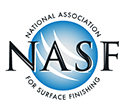OSHA Sends COVID Emergency Temporary Workplace Standard (ETS) to White House for Final Review
OSHA's COVID-19 Emergency Temporary Standard (ETS) has been submitted to the White House's Office of Management and Budget (OMB) for review and approval.
OSHA's much-anticipated COVID-19 Emergency Temporary Standard (ETS) for the nation's workplaces has been submitted to the White House's Office of Management and Budget (OMB) for review and approval. The Department of Labor press statement indicated that “OSHA sent draft standards to the Office of Management and Budget’s Office of Information and Regulatory Affairs for review. OSHA has been working diligently on its proposal and has taken the appropriate time to work with its science-agency partners, economic agencies, and others in the U.S. government to get this proposed emergency standard right.”
Of particular note in the statement is the Department of Labor's use of the plural “standards.” An OSHA representative recently noted the possibility that there may be one standard for higher risk industries (e.g., healthcare workplaces) and another standard for all other industries.
The ETS was initially scheduled to be issued by March 15, 2021 pursuant to President Biden's Day-1 OSHA Executive Order. Congressional leaders have been critical of the delay and have called OSHA to testify on the status of the rulemaking this week. The delay is in part due to the fact that the Biden Administration is weighing the need for the ETS and potentially regulatory burdens imposed on businesses by the ETS against the significant industry progress on minimizing COVID-19 hazards and the success thus far of rapidly expanding vaccinations.
With the submission of the ETS to OMB, affected stakeholders will have an opportunity for input. NASF is part of an industry coalition that recently met with OMB on the ETS. Issues raised in the meeting included:
- employers should be allowed to comply with ETS by following CDC guidance,
- the federal ETS should preempt state requirements,
- COVID cases and adverse vaccine reactions should be exempt from OSHA 300 Log recordkeeping,
- The ETS should provide extreme flexibility with respect to ventilation requirements,
- Implementation should allow for a grace period or staggered compliance deadlines,
- Should not mandate use of N95 masks, but should incentivize their use, and
- Permit employers to mandate vaccines, incentivize employers to encourage or mandate vaccine, and/or incentivize employees to get vaccinated.
These issues were well received and generated several questions from OMB officials. OMB is expected to complete its review by mid-May.
As NASF discusses the rule with industry allies and federal officials, we will keep members updated on new developments. If you have questions, please reach NASF by contacting Christian Richter at crichter@thepolicygroup.com or Jeff Hannapel at jhannapel@thepolicygroup.com.

This update is courtesy of the National Association for Surface Finishing (NASF). For more information or to become a member, visit nasf.org.
Related Content
-
Hexavalent to trivalent chromium — the environmental benefits
Regulatory pressures to switch from hexavalent chromium to trivalent alternatives are a growing concern for many finishing operations. In this Products Finishing Ask the Expert clinic, Brittany McKinney of Pavco discusses the environmental considerations driving these regulations.
-
OSHA, DOT and EPA Penalties Increase for 2023
The Department of Labor to revise civil penalty amounts for employer OSHA violations.
-
Practical Environmental Management Reduces Costs, Refines Quality
By focusing on effluent treatment and efficient tin recovery, this Indian surface treatment plant meets stringent environmental standards and sustainable high-quality production.















